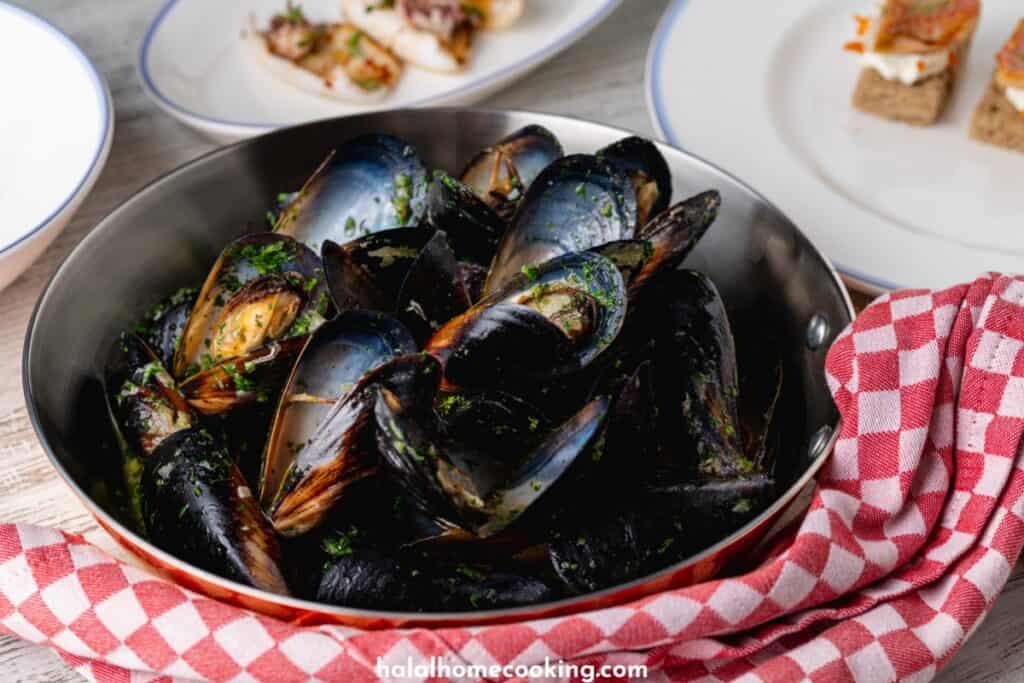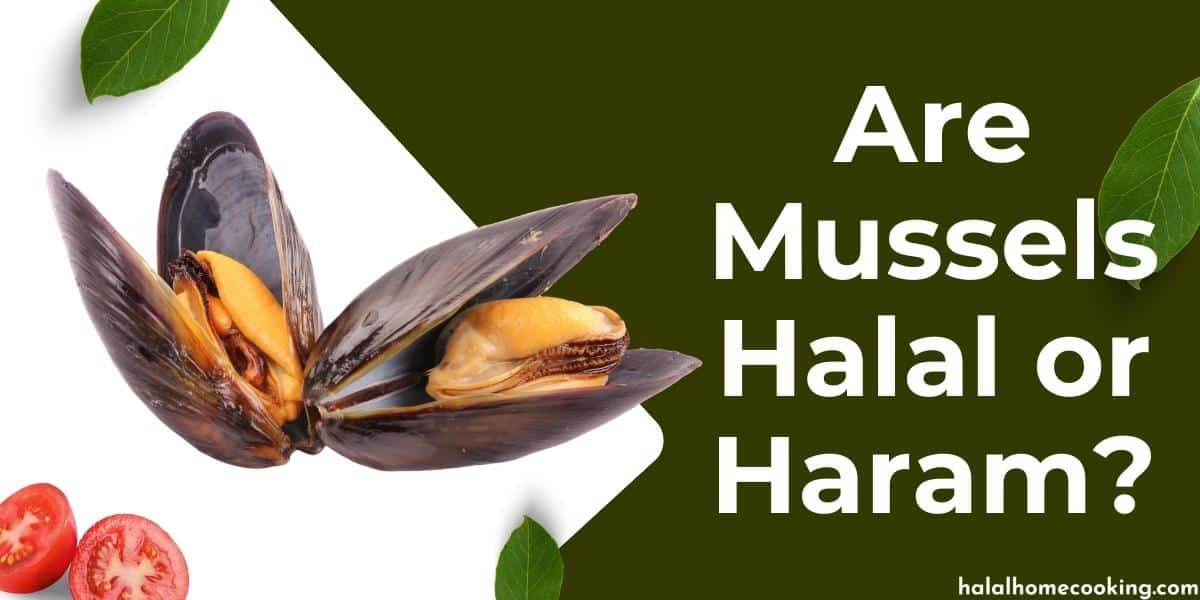In the realm of Islamic dietary laws, the question surrounding whether mussels are halal or haram has sparked a debate among Muslim consumers. As seafood holds a significant place in many diets and cultures around the world, Muslims need to discern which sea creatures fall under the permissible category.
Seafood itself can be considered halal if certain conditions are met: it must come from creatures that reside exclusively in water and have scales. This means that fish like salmon or tuna would qualify as halal due to their possession of scales. However, non-scaled sea animals like shrimp, crab, lobster, calamari (squid), scallops or mussels become topics of discussion within various sects such as Sunni Islam (Hanafi sect) and Shia Islam.
Islamic dietary law teaches followers not only about land animals but about sea creatures as well – including shellfish like mussels – which pose unique challenges due to differences amongst Islamic scholars’ opinions regarding their permissibility under Shariah Law.
It is integral to remember that Islamic dietary laws were devised by divine guidance. The Holy Quran guides Muslims towards discerning between halal and haram food sources, reminding believers that “He has forbidden you only dead animals, blood, the flesh of swine, and that which has been dedicated to other than Allah…” (Quran 2:173)
In light of this verse, Muslims are encouraged to be cognizant of their seafood choices. While interpretations may differ surrounding the permissibility of specific sea creatures like mussels or shellfish among various scholars within Sunni Islam – the Hanafi sect specifically – it remains essential for individuals to prioritize adhering strictly to Islamic teachings when it comes to consuming halal seafood.
Ultimately, seeking guidance from reliable sources like Islamic scholars or consulting reputable organizations specializing in Halal certification can clear any doubts regarding whether mussels should be considered halal or haram by individual Muslim consumers. As a community united under the worship of Allah Almighty, we must observe due diligence in upholding our faith’s principles while nourishing ourselves with permissible sustenance provided by nature’s bounty.

Are Mussels Halal in Sunni?
In Sunni Islam, mussels are generally considered to be halal. However, there may be differing opinions among scholars as some consider shellfish to be makruh (disliked) due to the ambiguity surrounding their categorization in Islamic jurisprudence. Muslims need to consult with knowledgeable scholars or local religious authorities to determine the opinion followed by their particular community or school of thought. Overall, unless prohibited by a specific interpretation followed by an individual or community, mussels can be consumed in Sunni Islam.
Also See: Are Scallops Halal?
Are Mussels Halal in Shia?
In Shia Islam, the concept of halal (permissible) and haram (forbidden) foods is primarily based on the guidelines provided by Islamic jurisprudence. According to the majority of Shia scholars and the rulings of Ayatollah Sistani, seafood, including mussels, is considered halal as long as it comes from a permissible source and has been properly slaughtered. However, it is important to note that individual scholars may have different opinions, so it is recommended to consult with a knowledgeable religious authority or Marja for specific rulings.
Are Mussels in Hanafi?
In the Hanafi school of Islamic jurisprudence, mussels have been deemed permissible to consume. This is because they fall into the category of seafood that does not require specific conditions for slaughter or preparation. The criteria for determining the permissibility of seafood in the Hanafi school primarily revolves around whether the creature has a blood circulation system or not. Since mussels lack this system, they are considered halal to consume according to the Hanafi scholars. However, it’s always recommended to consult with a religious authority for specific rulings and clarifications.
Can Muslims eat shellfish?
No, according to Islamic dietary laws, shellfish is considered haram (prohibited).
Are stuffed mussels halal?
No, stuffed mussels are not considered halal in Islam because they contain mussels, which are not permissible to consume according to Islamic dietary laws.

